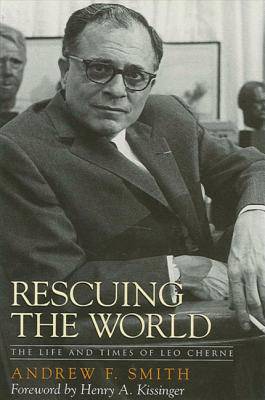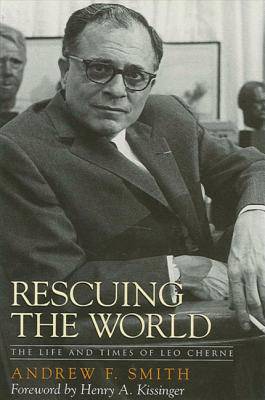
- Afhalen na 1 uur in een winkel met voorraad
- Gratis thuislevering in België vanaf € 30
- Ruim aanbod met 7 miljoen producten
- Afhalen na 1 uur in een winkel met voorraad
- Gratis thuislevering in België vanaf € 30
- Ruim aanbod met 7 miljoen producten
Omschrijving
A biography of one of America's leading humanitarians who, as an advisor to nine presidents, also had a lasting effect on American foreign policy.
Leo Cherne's life brimmed with paradox and improbability. He was born in the Bronx to a poor, immigrant, Jewish family, and yet rose to the heights of economic and political power in WASP America. A successful entrepreneur and an unofficial advisor to nine presidents, he nevertheless devoted the majority of his time to humanitarian causes, particularly the International Rescue Committee, which he chaired for forty years. From Hungary to Cuba to Cambodia, Cherne traveled across the globe on behalf of political refugees. A consummate networker, he also had the uncanny ability to attract and cultivate talented people before they became prominent, including such figures as John F. Kennedy, Ronald Reagan, Patrick Moynihan, Claiborne Pell, Tom Dooley, William Casey, John Whitehead, and Henry A. Kissinger. He was presented with the Presidential Medal of Freedom in 1984 by Ronald Reagan, who proclaimed that although never elected to governmental office, Leo Cherne had more influence on American foreign policy than most elected officials. The underlying theme of his life was that one person, without family contacts or wealthy connections, could make a difference worldwide in political and humanitarian affairs.
Specificaties
Betrokkenen
- Auteur(s):
- Uitgeverij:
Inhoud
- Aantal bladzijden:
- 272
- Taal:
- Engels
Eigenschappen
- Productcode (EAN):
- 9780791453797
- Verschijningsdatum:
- 15/08/2002
- Uitvoering:
- Hardcover
- Formaat:
- Genaaid
- Afmetingen:
- 157 mm x 234 mm
- Gewicht:
- 571 g

Alleen bij Standaard Boekhandel
Beoordelingen
We publiceren alleen reviews die voldoen aan de voorwaarden voor reviews. Bekijk onze voorwaarden voor reviews.











